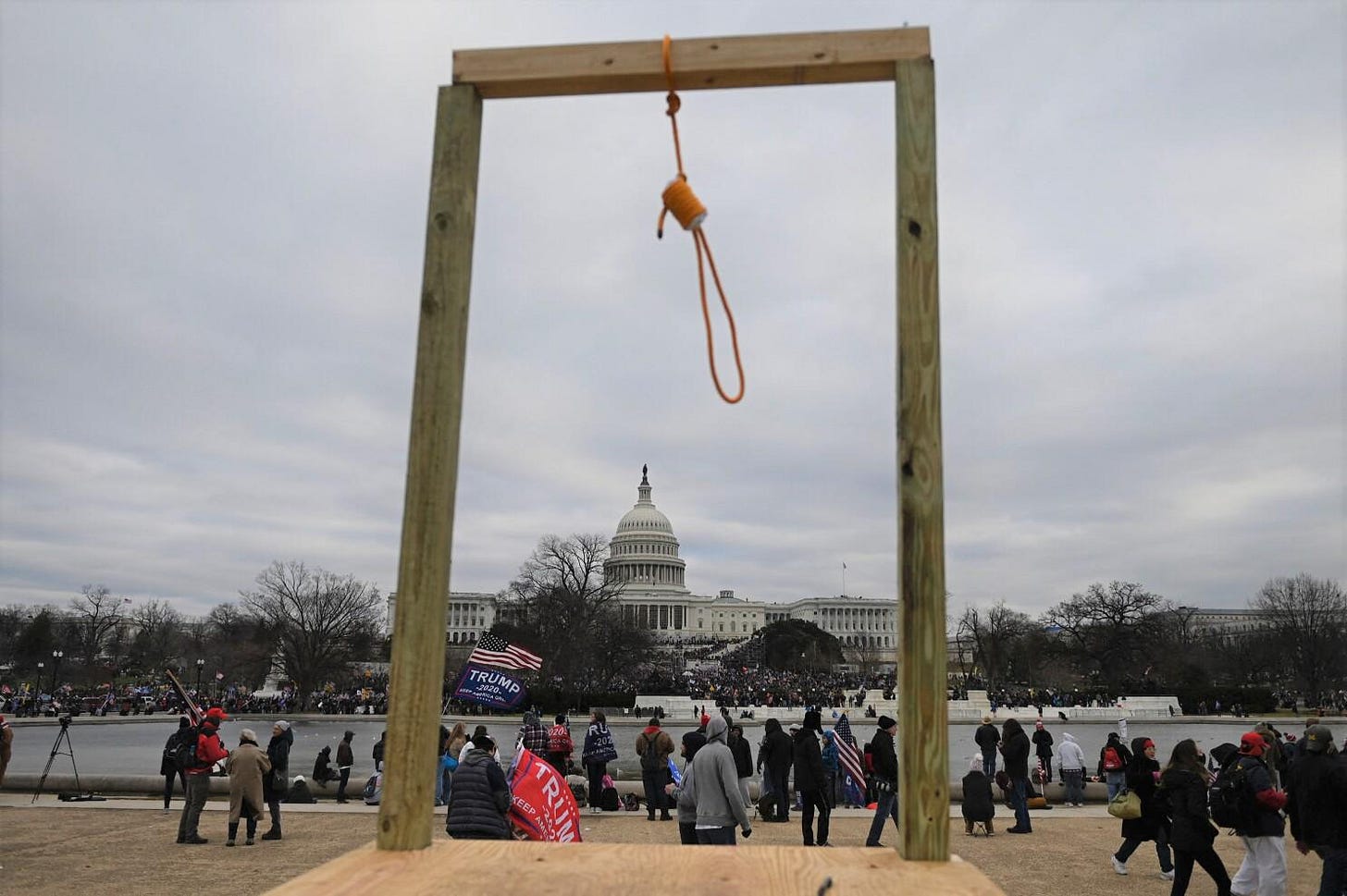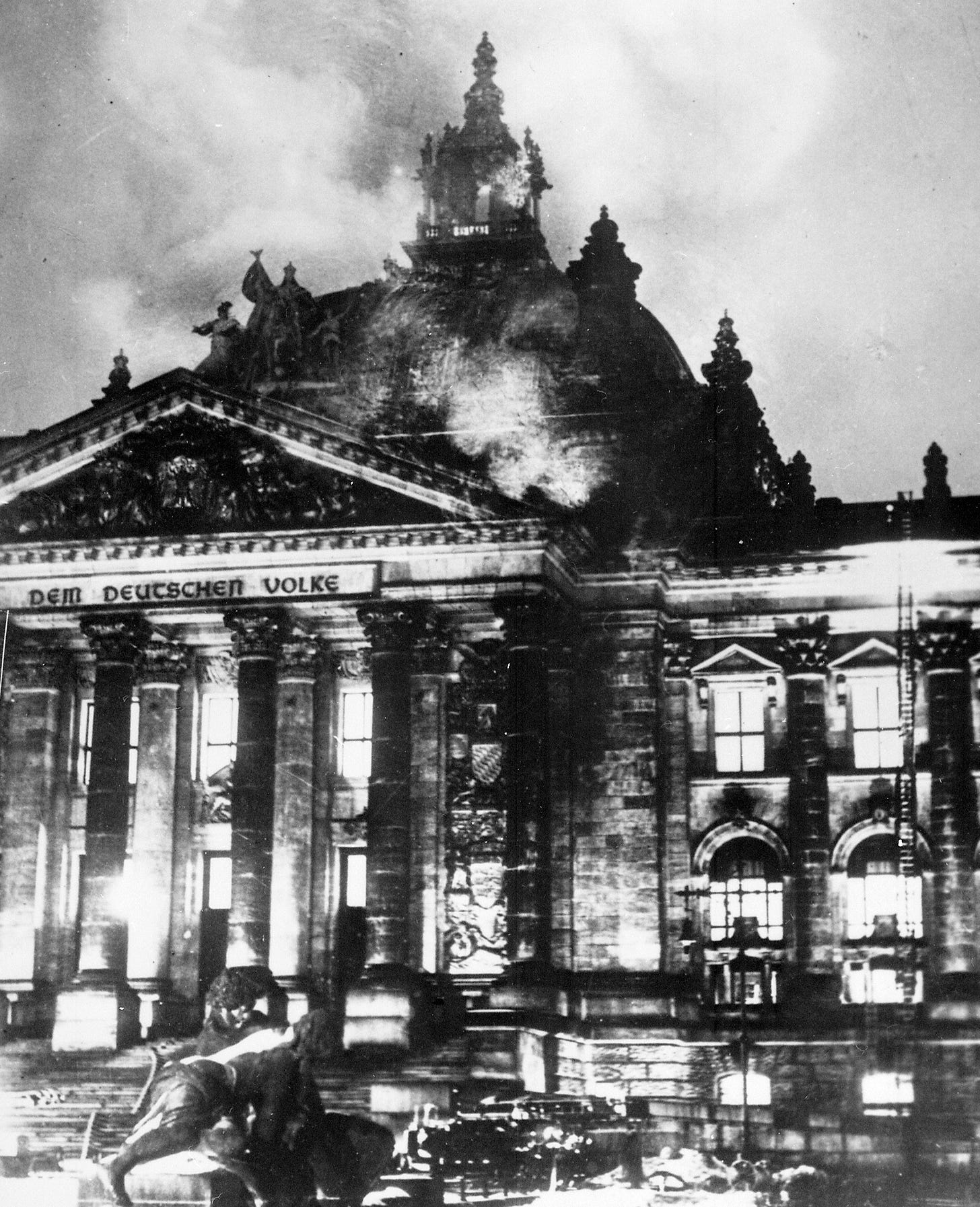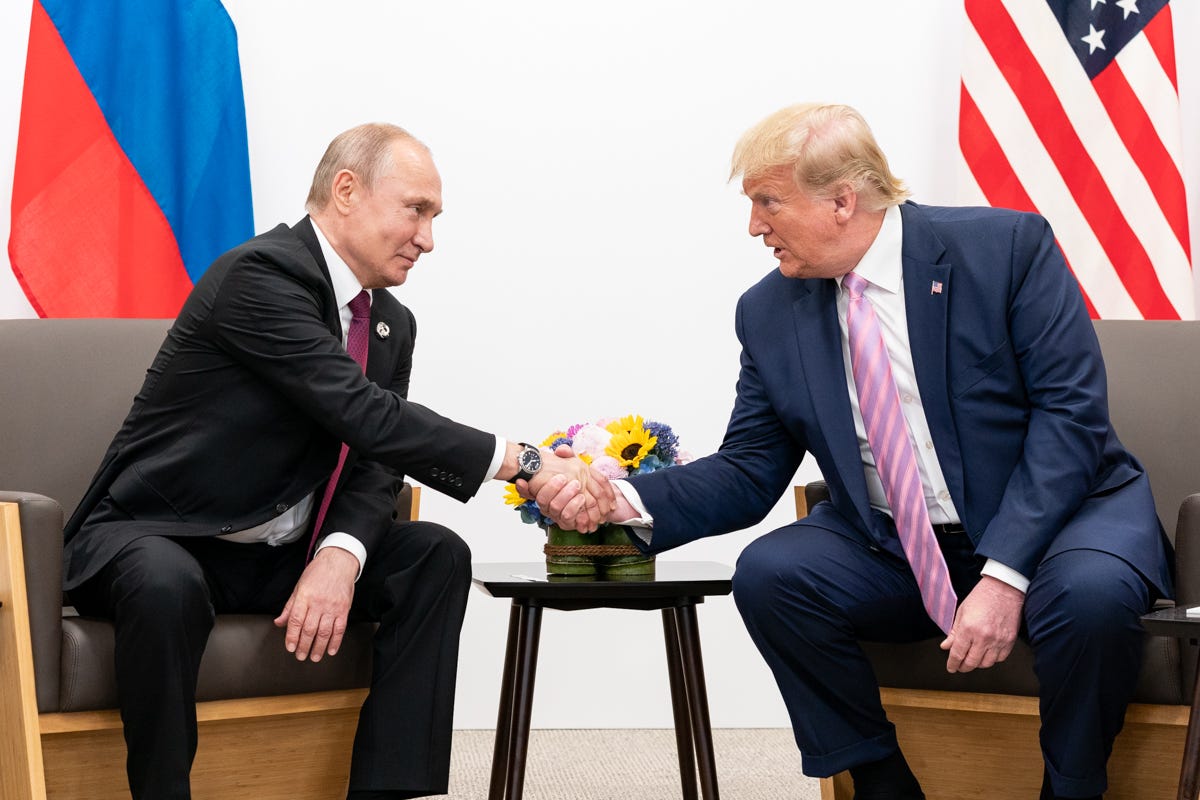Chapter 33: Thinking about Tomorrow
The Rules of the Game - And Those Who Refuse to Play by Them
Thucydides (460 BC - 400 BC), the first great historian, wrote early in his History of the Peloponnesian War that “The absence of romance in my history will, I fear, detract somewhat from its interest; but if it be judged useful by those inquirers who desire an exact knowledge of the past as an aid to the interpretation of the future, which in the course of human things must resemble it if it does not reflect it, I shall be content.”1 That is to say, history does not repeat itself in a simple way. However, the forces at play tend to drive people in certain directions. The world may be vastly more complex today than it was in fifth century BC Athens when Thucydides wrote these words. Nevertheless, people, with all their strengths and weaknesses, keep coming in the same size.
It is essential to use history to help us think about tomorrow, because we have nothing else to go on. The history to which this Substack series keeps returning is Germany from the conclusion of World War I in 1918 to the end of World War II in 1945. These years saw the creation of the Weimar Republic and its destruction as well as the creation of the Third Reich and its destruction.
Chapters in the Substack have dealt with these events on a number of occasions:
Chapter 1: The Nazi Seizure of Power
Chapter 6: Can It Happen Here?
When discussing Hitler (1889-1945) and Trump, we must begin our attempt to learn from the past with more than one caveat. The year 1933, when Hitler became Chancellor, is not 2025, the beginning of Trump’s second term. Germany was then mired in a severe depression, still emotionally traumatized by the defeat in World War I in 1918, the Versailles Treaty the following year with its onerous reparations and its war guilt clause, and the hyperinflation of 1923. Trump by contrast inherited a healthy economy in a nation which had not experienced anything like the disasters mentioned above.
As individuals, the two are strikingly different. Hitler’s father was an Austrian civil servant, and he himself did not become a citizen of Germany until January 25, 1932. He was 43 years old when he became Chancellor. Trump is the son of a rich man from whom he inherited a fortune. At 78, he is the oldest man ever to be inaugurated as President. Hitler hid his sexuality. Trump paraded his.
The countries are different, and the men are different. But given the chaos which has engulfed the United States since January 20, the similarities between these two adventurers deserve attention. The discussion which follows will be divided into two parts. The first part is: rise to power. The second is: revolution after power.2
In their rise of power, Hitler and Trump faced a similar problem. Both were outsiders in politics. Neither had any experience in elected or appointed office. Given this inexperience, how were they to compete against men who had devoted their whole lives to politics?
Neither man mastered the rules of the game they found themselves confronting. Rather, they changed the rules. Both were adept with the communication technology of their eras. Hitler was a great public speaker and very effective on the radio. Trump turned himself into a star through television and has proven skilled with social media.
Both men use language to shock and confuse those in public life. The virulence of Hitler’s antisemitism is known to the world -- as is the Holocaust which would not have taken place without him. He did not engage in “debates” with “opponents.” Rather, he “demonized” his “enemies.”
Trump’s approach has been similar. For him, Jews have been substituted by immigrants, poisoning, as he put it, the blood of our country – a phrase which prior to him was starkly out of place in American politics but quite well known in Germany a century ago.
Both men mocked their opponents, also known as their enemies. Trump’s mockery delighted his fans and diminished his enemies. Pocahontas for Elizabeth Warren. Crooked, sleepy, Joe Biden. Low energy Jeb Bush. Lyin’, crazy, crooked Hillary Clinton. Lyin’ Ted Cruz. Birdbrain Nikki Haley. Comrade Kamala Harris. Gavin Newscum. And so on. Hitler and Trump transformed public discourse by bringing the gutter into politics.
Both men attempted to overthrow the government by force. In Hitler’s case, it was the Beer Hall Putsch of 1923. In Trump’s case, it was the attack on the Capitol in 2021.
Both these attempted coups failed. Hitler spent a couple of months in a comfortable prison after his attempted coup. Trump was never punished at all. The inability of the established order to defend itself was starkly illustrated to both these people. They smelled weakness. Hitler and Trump turned to an effort to achieve power through legal means.
Both men needed political parties to achieve their goal. Hitler created the Nazi Party. Trump captured the Republican Party so completely that it bears no resemblance to what it once was. It is difficult to believe that Republicans once stood for law and order and opposed Russia. That day is gone. Both parties were completely in thrall to the men at the top. No disagreement was tolerated.
Both men demanded absolute loyalty. Hitler “established around him, an aura of unquestioning obedience and unchallenged leadership. . . . Only men who regarded him as a genius were allowed to come close; critics were not tolerated.”3 Likewise, Trump insisted on personal loyalty. And if you didn’t get the point, he described himself as “a very stable genius.”4
Hitler and his Nazis thrived on street violence. The examples are legion. Here is one, recounted in Chapter 1 of this Substack series: In June of 1931 in the small town of Northeim, two Nazi stormtroopers “trampled a socialist with their boots and cut off his fingers with a sickle.”5 Think about that. It feels even more brutal and terrifying than outright murder. The sadistic element in what was once a peaceful country town is shocking.
Street violence was less common with Trump. But it certainly was not absent. Trump famously, or infamously, commented of the Charlottesville rioters that there were good people on both sides. Actually, there were not. During the George Floyd protests in 2020, he encouraged violence, describing himself (in an accidentally comic anachronism) as “the President of law and order.”6 And no one will forget the violence he created by summoning a mob to the Capitol on January 6 of the following year.
At least as important in Trump’s world as actual violence has been the threat of violence against those who did not obey his orders. Often, one reads of members of Congress who are frightened to vote against what Trump demands. The fear, especially among Republicans, is not only that they will be primaried. It is also that their physical security and that of their families will be put in jeopardy.7 Physical intimidation is very much a part of Trump’s environment.
This fear is not restricted to political figures. It extends to academia and also business people. Across the board, no one wants to be targeted by Trump and his minions.

Both Hitler and Trump lied constantly. Indeed, both were at war with the idea of truth. And both men were lucky in the incompetence of their opponents.
In both the cases of Hitler and Trump, a revolution did not bring them to power. It took place after they had already achieved power. Thus it is quite different from, say, the American Revolution which was fought in order to gain power.
In Germany, the liberal order began to unravel quickly after January 30, 1933, when Hitler became Chancellor. On February 27, the Reichstag, the building which housed the German parliament, was burned down. The perpetrator was a Dutch leftist.8 That night, Hitler declared that "there will be no more mercy now: anyone who stands in our way will be cut down."9 The next morning, Hitler persuaded the cabinet and the president, Paul von Hindenburg (1847 - 1934), to issue the Reichstag Fire Decree making possible the suspension of civil liberties and mass arrests of Hitler’s opponents.10

The next step was the passage of the Enabling Act on March 23. This effectively gave Hitler the power to make laws without the approval of the Reichstag or of the president. With this legislation, what we refer to as political freedom came to an end in Germany. The rule of law also came to an end, as did free elections. “Together with the Reichstag Fire Decree, the Enabling Act provided the quasi – legal fig leaf for the introduction of a dictatorship and its perpetuation all the way up to 1945.”11 It would take a catastrophic defeat in a calamitous war before freedoms were restored.
On April 7, a decree was promulgated which made possible the takeover of the German civil service, composed of hundreds of thousands of state employees and including teachers and university professors. Members of any political party other than the Nazis were dismissed at a time when unemployment was still high. By the end of June, Germany was a one party state.12 This took place less than half year after Hitler was elevated to the Chancellorship. If you wanted to avoid a concentration camp (Dachau was created in 1933), if you wanted to avoid being beaten, if you wanted to keep your job, ostentatious loyalty to Hitler was required. When you greeted a friend on the street, you lifted your right hand and said “Heil Hitler.”13
Less than two months into Trump’s second term, where is the United States? The rule of law is being undermined as never before in the nation’s history. In the words of Erwin Chemerinsky, Dean of the Berkeley Law School, “If the Trump administration chooses to defy court orders, we will have a constitutional crisis not seen before. . . . [P]erhaps, after 238 years, we will see the end of government under the rule of law.”14
Trump has issued more than 80 executive orders. Some of these violate statutes; some of them are unconstitutional. He has fired thousands of people from the civil service, a large number of whom he does not have the legal right to terminate. Lawsuits are being brought. Some of the firings are being disallowed by judges. Sometimes employees are being asked to return to an agency after being unceremoniously let go. The ensuing confusion leaves no one in the government’s employ knowing what tomorrow will bring. It took Hitler two and a half months to destroy the independence of the German civil service. Trump is ahead of his schedule. So far, there has been no effective resistance to the demolition of an infrastructure which took many decades to create.
Trump has already fired top people in the armed forces and replaced at least one of them with a loyalist. He is ahead of Hitler’s schedule in this regard as well.
As did Hitler, Trump wants to turn the United States into an autarky. Hitler was a nationalist – indeed a rabid nationalist. The formal name of the Nazis was the “National Socialist German Workers Party.” In the early years, Hitler made it a point, especially when talking to businessman, to reassure them that the "national" was what mattered rather than the "socialist."15 His nationalism and his desire to prepare Germany for war were why he wanted to make Germany self-sufficient.
Trump claims to be a nationalist who puts America first. But his nationalism is in evidence only when he is trying to aggravate our traditional allies. When he talks of Vladimir Putin, he seems more like a vassal than a true nationalist.

At any rate, Trump has expressed what may be his brand of nationalism by proposing tariffs. He has said that “tariff” is “the most beautiful word in the dictionary”16 and praises William McKinley (1843 -1901), the 25th President, who was a high tariff man. Trump often talks about levying high tariffs on our principal trading partners. However, he postpones these tariffs as quickly as he announces them, leaving everyone to wonder what the final outcome of this will be.
We know what the outcome was of Hitler’s craziness. We do not know what the outcome will be of Trump. The days since his inauguration have proven as tempestuous and as pointlessly wacky as only his most austere critics predicted. Not only, as mentioned above, is the rule of law at risk. So are our our civil liberties. So also is our democracy.
Trump’s critics say that in two years the mid-term elections will yield Democratic majorities, and in four years Trump will be history. However, that future is very much in doubt.
Let us speculate that if Trump’s economic program is followed closely, the result is likely to be hardship. The price of necessities will rise. Indeed, the price of groceries already is going up. Inflation might therefore force the federal reserve to raise interest rates. In that case, purchasing a home will become even more expensive. Inflation might be accompanied by no real economic growth. So we might be in for stagflation. If at last his own people turn against him, there may be anti-Trump demonstrations. With the police power of the state in his hands, who can doubt that he, like Hitler, will respond with violence.
Trump flounders around like a fish on dry land. What he says on one day is only passingly related to what he may say on the next day. Is the United States going to invade Panama and retake the canal? Is the United States going to annex Greenland despite what the Danes and the Greenlanders may want? Is the United States going to seize the Gaza Strip and turn it into an international resort despite what the Palestinians may want? Is the United States going to make Canada the 51st state? Who knows what tomorrow will bring?
What we do know is that Trump will do anything to avoid losing an election. The question that asserts itself is: What will happen if the polls show in 2026 that the Democrats are going to retake Congress, or if they show in 2028 that a Democrat is going to be elected President? Is there any reason to believe that Trump would accept such an outcome? Is it not more likely that he would use the limitless power he has at present either to fix the elections or to prevent them? That will be the true test of American democracy. And that is something worth thinking about for tomorrow.
Abraham Lincoln (1809 - 1865) did not entertain for an instant the idea that the election of 1864 should be postponed or cancelled. He never questioned that the election would be held, even if, as he thought as late as August, 1864, he would lose. Lincoln’s project was to prove, as he put it, that popular government is not an absurdity.
No one ever mistook Trump for Lincoln. Will Trump permit free and fair elections if it appears likely his side will lose? What could prevent him from declaring martial law and calling off elections?
One last word.
There is an important trait that Hitler and Trump have in common. Both men are all about hate. Hitler’s hatred of communists, socialists, trade unionists, and above all Jews has been thoroughly documented. So have the results of that hatred.
With regard to Trump, here is what reporter Bob Woodward wrote. The two of them viewed a tape of Trump’s 2019 State of the Union Address.
“One of the first shots was of Bernie Sanders, who looked bored. Trump had a different interpretation. ‘They hate me. . . . You are seeing hate!’ A shot of Elizabeth Warren was next. She was paying attention but had a bland, unemotional look on her face. ‘Hate!’ Trump said. A shot of an expressionless Alexandria Ocasio – Cortez. Trump pointed at her. ‘Hate! See the hate!’ . . . . The camera lingered . . . on, Kamala Harris, who had a straight, even polite look on her face . . . . ‘Hate!’ Trump said. “See the hate! See the hate!’”17
Trump often ascribes to others what he feels himself.
Penguin edition, e-book, p. 17.
Alan Bullock, Hitler: A Study in Tyranny (New York: Harper Collins, 1991) pp. 137-171.
Richard J. Evans, Hitler’s People (New York: Penguin, 2024) p. 41.
https://www.cnn.com/2018/01/06/politics/donald-trump-white-house-fitness-very-stable-genius/index.html
William Sheridan Allen The Nazi Seizure of Power (Brattleboro, VT: Echo Point Books & Media,2014) p. 65.
https://time.com/5846321/nixon-trump-law-and-order-history/
https://www.nytimes.com/2025/03/06/us/politics/trump-democracy.html?smid=em-share
Evans, People, p. 43.
Evans, People, p. 45.
Evans, People, p. 43.
Evans, People, p. 46.
Evans, People, p. 47.
Evans, People, p. 47.
https://www.nytimes.com/2025/03/07/opinion/trump-courts-judges.html?smid=nytcore-ios-share&referringSource=articleShare
Evans, People, p. 18.
https://www.theguardian.com/news/audio/2024/dec/16/the-most-beautiful-word-in-the-dictionary-donald-trumps-tariff-plan-podcast
Bob Woodward, Rage (New York: Simon & Schuster, 2020) p. 207



